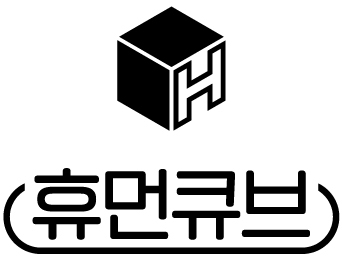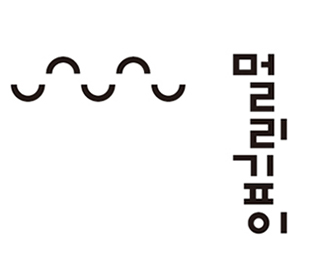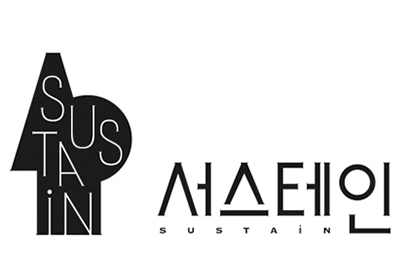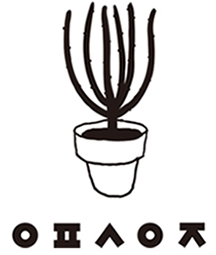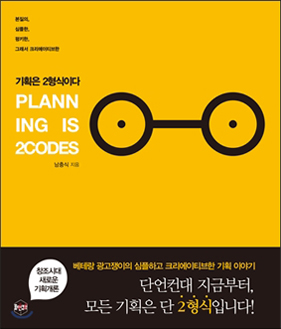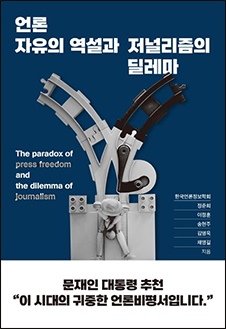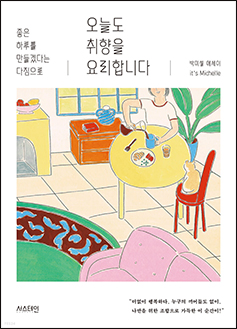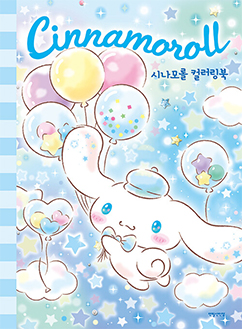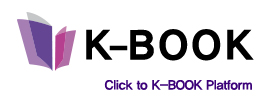|
Korean Publishers
Human Cube From an Imprint to a Publisher, and Finally, a Publishing Group
2023.06.05
An imprint refers to a system where a publisher gives an independent brand or affiliate to an editor or others and entrusts them with the entire management of it. Many big publishing houses have several imprints in operation as it is like killing two birds with one stone – skillful editors can receive the capital and know-how from the parent company, and the parent company can keep diversity in publications. Human Cube, which began as an imprint of a large publishing house Munhakdongne in 2012, gained independence in 2018. Since then, it has been growing at a fast pace, publishing various books based on the experiences cumulated during the years run as an imprint. Today, Human Cube has become a publishing group with three affiliates, cultivating competent publishers. Following is an interview with Hwang Sang-Wook, head of the publishing house Human Cube, which has become a byword for a successful imprint.
The logo of Human Cube

It’s an honor to have you on K-Book Trends. Please introduce Human Cube to our overseas readers along with the meaning of its name.
Human Cube was established in January 2012 under the slogan, “We pursue books that fuse warm sensibility and precise intelligence.” Since its establishment, Human Cube has always focused on “people.” Writing and editing texts, and designing and producing books, are all done by people. And the readers are people, too. So, as there are “people” in the entire course of making, advertising, and reading books, we have been, and will continue to focus on “people.” It’s also why we put “human” in the company’s name.

The phrase “We pursue books that feel humane” from the introduction of Human Cube is quite impressive. What kind of books are “humane” to Human Cube?
While the demand for books is on the decline these days, Human Cube thinks that humane books are those that are helpful to readers. So, books that provide information, give enlightenment, console, or entertain, or even those that can “heal” readers as they read books, can be “humane” books. We aim to make books through which readers can feel the clear difference before and after reading them.
Establishing a publishing ecosystem alone is the biggest accomplishment and change of Human Cube.

Please tell us about the process of gaining independence from being an imprint and establishing a separate publishing house.
When I was in the planning department at Munhakdongne, I set up “Human Cube,” an imprint, with investment from Munhakdongne, to be a publisher that I wanted and dreamed of. I fueled the growth of Human Cube little by little, by taking charge of planning and editing myself, and receiving help from Munhakdongne regarding marketing, production, and accounting, for some expenses. I built up the identity of Human Cube by publishing books that I wanted to make one by one in cooperation with the authors, and it continues today.

Even though you have experienced publishing during the imprint years, many things must have been new after establishing an Independent publishing house. What was the biggest change after standing on your own feet?
If Human Cube were within the boundary of Munhakdongne before independence, now we have truly settled as a publishing house by newly establishing the entire book publishing process. Setting up the publishing ecosystem on our own is the biggest accomplishment and change. Now we are a family. Now there are three corporate affiliates under Human Cube – Murly Books, Sustain, and Pencil Cholla.
The logo of the affiliates Murly Books, Sustain, and Pencil Cholla

Please tell us about the characteristics and representative books of Human Cube and its affiliates.
Human Cube is the leading brand of the Human Cube publishing group. The best book is Planning is Two Codes. I think it is the book that most perfectly represents the “book that I want to make the most” as the head of a publishing house, growing from an editor. It’s the most Human-Cube-like book in terms of content, style, and structure.
Planning is Two Codes, The Paradox of Press Freedom and the Dilemma of Journalism, I’m Cooking Preferences Today, and Cinnamoroll Coloring Book

Each affiliate’s steady publishing of books reminds us of Human Cube in the past, where it grew as an imprint. Is there a particular reason for having affiliates?
Well, obviously, I can’t do things entirely by myself. We have to join hands to do sustainable publishing in this era where fewer people are reading books. Being an imprint in a large publisher, which is like a corporate venture or start-up, has both bright and dark sides. The affiliate system of Human Cube is the same. I felt the limitations while being an imprint and an affiliate at Munhakdongne for six years, and I have always dreamed of establishing an independent publishing house.
In this era of fewer readers, we must join hands to continue our type of sustainable publishing.

Human Cube has published books in various fields, such as business, self-help, politics, social science, humanities, young adults, and children. Is there a particular reason for planning and publishing books of various genres?
The core keywords are “sustainability” and “survival.” The diversity is the result of serious thoughts about how to draw and connect readers’ demands and the capacity of the authors we are working with. Of course, it’s not for making the company a general store that sells everything to fill our greed. I think diversity was an inevitable choice as we observed our surroundings and focused on “people.” It is our goal to do sustainable publishing by making books one after another based on our own viewpoint.

It seems that you need a wide range of interests and insights as you are planning books in various fields. What areas are you particularly paying attention to, to keep Human Cube competitive?
I don’t think that Human Cube is the best publisher, nor that our books are special. It’s not about being humble, but as there are just so many publishing houses that make good books and work hard, we try to experience as many books or content as possible and find our own color. Of course, in areas that seem impossible, we try to find the best solution or give up considering the reality. I believe that fiercely pondering over ways to find the best solution is our competitiveness as Human Cube is yet the best publisher.

We look forward to Human Cube’s bright future. What are your next plans or goals?
In the meantime, Human Cube has been playing an important role in cooperating with writers that are not well known or have potential, to make them widely known to the public. The best example was the cooperation with Korean history teacher Seol Min-Seok. And since late 2022, we have consecutively published Korean folktales in 50 volumes with writer Hwang Sok-Yong, one of the representative storytellers of our generation in Korea. Also, with K-content drawing massive popularity around the world in each field, we are preparing to make content (books, webtoons, videos, etc.) that transcend generations and borders based on Korean stories.
#Human Cube#Imprint#Murly Books#Sustain#Pencil Cholla |
Pre Megazine
-

Jakkajungsin Publishing Co.
VOL.69
2024.04 -

Writer Yun Jung-Eun
VOL.69
2024.04 -

Jumping Books Publishing House
VOL.68
2024.03 -

Writer Kim Hwa-Jin
VOL.68
2024.03 -

Publisher Hyohyung
VOL.67
2024.02 -

Writer Minha
VOL.67
2024.02 -

Almond Publishing
VOL.66
2024.01 -

Writer Kwon Jung-Min
VOL.66
2024.01 -

Hakgojae Publishers
VOL.65
2023.12 -

Writer Kim Hye-Jung
VOL.65
2023.12 -

Eidos Publishing House
VOL.64
2023.11 -

Writer Hwang In-Chan
VOL.64
2023.11 -

Munhakdongne
VOL.63
2023.10 -

Writer Chang Kang-myoung
VOL.63
2023.10 -

Happywell Publishing
VOL.62
2023.09 -

Writer Baik Soulinne
VOL.62
2023.09 -

Dasan Contents Group (Dasan Books)
VOL.61
2023.08 -

Writer Lim Kyoung-Sun
VOL.61
2023.08 -

SpringSunshine Publishing Co.
VOL.60
2023.07 -

Writer Lee Kyung-Hye
VOL.60
2023.07 -

Human Cube
VOL.59
2023.06 -

Doctor Jeong Jae-Seung
VOL.59
2023.06 -

Anonbooks
VOL.58
2023.05 -

Writer Son Bo-Mi
VOL.58
2023.05 -

Namhaebomnal
VOL.57
2023.04 -

Writer Kim Bo-Young
VOL.57
2023.04 -

Hugo Publishing
VOL.56
2023.03 -

Writer Cho Kwang-Hee
VOL.56
2023.03 -

Balgeunmirae Publishing Co.
VOL.55
2023.02 -

Writer Lee Byung-Ryul
VOL.55
2023.02 -

Wisdom House, Inc
VOL.54
2023.01 -

Writer Jeong Jia
VOL.54
2023.01 -

Humanitas
VOL.53
2022.12 -

Writer Kim Yeon-Su
VOL.53
2022.12 -

Songsongbooks
VOL.52
2022.11 -

Writer Eun Hee-Kyung
VOL.52
2022.11 -

Bombom Publishing Co.
VOL.51
2022.10 -

Writer Jiwon Yu
VOL.51
2022.10 -

Hangilsa Publishing Co., Ltd.
VOL.50
2022.09 -

Writer Kim Won-Young
VOL.50
2022.09 -

Moksu Publishing Company
VOL.49
2022.08 -

Writer Yoo Sun-Kyong
VOL.49
2022.08 -

Next Wave
VOL.48
2022.07 -

Writer Park Sang-Young
VOL.48
2022.07 -

A Thousand Hopes
VOL.47
2022.06 -

Writer Bora Chung
VOL.47
2022.06 -

Woongjin ThinkBig
VOL.46
2022.05 -

Dr. Oh Eun-Young
VOL.46
2022.05 -

JECHEOLSO Publishing House
VOL.45
2022.04 -

Writer Jang Ryu-Jin
VOL.45
2022.04 -

Changbi Publishers
VOL.44
2022.03 -

Writer Kim Ho-Yeon
VOL.44
2022.03 -

Mati Books
VOL.43
2022.02 -

Writer Lee Kkoch-Nim
VOL.43
2022.02 -

Picturebook Gongjackso
VOL.42
2022.01 -

Writer Kim Sang-Wook
VOL.42
2022.01 -

Writer So-yeon Park
VOL.42
2022.01 -

Writer Yoo Eun sil
VOL.42
2022.01 -

Kungree Press
VOL.41
2021.12 -

Writer Kim Lily
VOL.41
2021.12 -

Writer Park Yeon-jun
VOL.41
2021.12 -

Writer Yi Hyeon
VOL.41
2021.12 -

A deeper world told through picture books 'Iyagikot Publishing (Story Flower)'
VOL.12
2019.06 -

Author Jeon Min-hee
VOL.12
2019.06 -

Illustrator Kim Hwan-Young
VOL.13
2019.07 -

Travelers sailing through the sea of knowledge - 'Across Publishing Group Inc.'
VOL.13
2019.07 -

Genre Novel Publisher 'Arzak Livres'
VOL.14
2019.08 -

Author Lee Yong-han
VOL.14
2019.08 -

Wookwan Sunim
VOL.15
2019.09 -

East-Asia Publishing
VOL.15
2019.09 -

Author Jo Jung-rae
VOL.16
2019.10 -

EunHaeng NaMu Publishing
VOL.16
2019.10 -

Writer Heo Kyo bum
VOL.40
2021.11 -

Writer Kim So-Young
VOL.40
2021.11 -

Author-illustrator Kim Sang Keun
VOL.40
2021.11 -

ACHIMDAL BOOKS
VOL.40
2021.11 -

Author Kang Gyeong-su
VOL.17
2019.11 -

Moonji Publishing Belongs to the Literary Community
VOL.17
2019.11 -

Author Kim Yun-jeong
VOL.18
2019.12 -

I-Seum
VOL.18
2019.12 -

Kim Cho-Yeop
VOL.19
2020.02 -

Creating a window into the future with books
VOL.19
2020.02 -

Author Serang Chung
VOL.20
2020.03 -

Hey Uhm
VOL.20
2020.03 -

Writer Lim Hong-Tek
VOL.21
2020.04 -

BIR
VOL.21
2020.04 -

Writer Song Mikyoung
VOL.39
2021.10 -

Author-illustrator Kim Dong Su
VOL.39
2021.10 -

Writer Lee Seula
VOL.39
2021.10 -

Tabi Books
VOL.39
2021.10 -

Writer Kim Soo-hyun
VOL.38
2021.09 -

Author-illustrator Lee Myoung Ae
VOL.38
2021.09 -

Writer Hwang Sunmi
VOL.38
2021.09 -

Kidari Publishing Co.
VOL.38
2021.09 -

Writer Sohn Won-Pyung
VOL.22
2020.05 -

Woods of Mind's Books
VOL.22
2020.05 -

Writer Heungeul
VOL.23
2020.06 -

Gloyeon
VOL.23
2020.06 -

Maumsanchaek
VOL.24
2020.07 -

Winners of the 2021 Bologna Ragazzi Award
VOL.37
2021.08 -

Picture book artist Lee Suzy
VOL.37
2021.08 -

Author-illustrator Yi Gee Eun
VOL.37
2021.08 -

Hubble
VOL.37
2021.08 -

Writer Baek Se-Hee
VOL.25
2020.08 -

Bearbooks Inc.
VOL.25
2020.08 -

Author Baek Hee-Na
VOL.26
2020.09 -

Yuksabipyoungsa
VOL.26
2020.09 -

Writer Kang Hwa-Gil
VOL.27
2020.10 -

Kinderland (Bandal)
VOL.27
2020.10 -

Writer Ha wann
VOL.36
2021.07 -

Author-illustrator Myung Soojung
VOL.36
2021.07 -

Writer Jung Yeo-Wool
VOL.36
2021.07 -

Publisher EcoLivres
VOL.36
2021.07 -

Writer Lee Geumi
VOL.28
2020.11 -

Sakyejul
VOL.28
2020.11 -

Writer Kim Keum-Hee
VOL.29
2020.12 -

Geulhangari
VOL.29
2020.12 -

Writer Cheon Seon-Ran
VOL.30
2021.01 -

Hyang Publishing House
VOL.30
2021.01 -

Writer Lee Hee-Young
VOL.31
2021.02 -

Sanzini
VOL.31
2021.02 -

Publisher Prunsoop
VOL.32
2021.03 -

Writer Sim Yun-Kyung
VOL.32
2021.03 -

Hanbit Media
VOL.35
2021.06 -

Hyeonamsa
VOL.33
2021.04 -

Author-illustrator Noh Inkyung
VOL.33
2021.04 -

Writer Cho Won-Jae
VOL.35
2021.06 -

Writer Kim Jung-Mi
VOL.34
2021.05 -

Safehouse Inc.
VOL.34
2021.05


